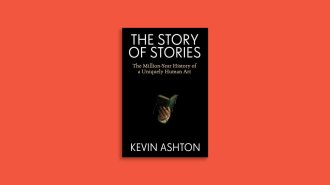You might predict that most fans of the satirical, Fox News–mocking show “The Colbert Report,” are Democrats. But it turns out that liking rapper Nicki Minaj and enjoying cuddling also hint at leftward political leanings. A new study finds that the things someone “likes” on Facebook can predict personal attributes such as political leaning, age, gender and sexual orientation.
The study harnessed data from 58,000 volunteers who used an app on Facebook called myPersonality, which study coauthor David Stillwell of the University of Cambridge in England created several years ago. Via the app, participants shared private information including the results of IQ tests and personality questionnaires that asked questions such as whether their parents were married and whether they smoked or drank alcohol. The researchers compared those data with the pages participants had “liked” on Facebook. After learning from a subset of the data which “likes” linked with which traits, the program then predicted traits for the other participants based on “likes” alone.
Many of the study’s findings are intuitive or even obvious: Liking Jesus Christ is strong evidence of being Christian, the researchers report March 11 in the Proceedings of the National Academy of Sciences. Similarly, liking Cover Girl makeup is a strong indicator that a participant is female and liking Rush Limbaugh strongly links with identifying as Republican. But some less obvious connections also emerged: The computer program could predict 73 percent of the time whether someone was a smoker, for example based on “likes” of the heavy metal rock band Slayer and the Facebook group “I Bottle Everything Up Until I Finally Snap.”
The computer also correctly identified gay men 88 percent of the time, even though less than 5 percent of them had liked things explicitly related to sexual orientation. Predictions instead relied on less obvious links such as liking the TV show Desperate Housewives or the musical Wicked.
And then there were connections that seem to come from left field: Being a fan of thunderstorms and curly fries, for example, were each weakly linked to higher intelligence.
“I’m glad that many of the findings seem to be intuitive,” says coauthor Michal Kosinski, who studies psychology at the University of Cambridge in England and works part-time for Microsoft.
Of course, the line between intuition and stereotyping is a blurry one. But the computer isn’t biased, says Kosinski. It just spits out correlations.
“It is striking that the computer can pick up on sexual orientation,” he says. He is eager to explore the link between curly fries and intelligence.
The study’s methods are sound, says New York University’s Sinan Aral, an expert on information diffusion in social networks. But the computer performed best on somewhat obvious traits, such as gender, age, and race. Since the researchers didn’t compare the technique with any others, he says, it’s hard to know how its predictive power would stack up against correlations based on other easily available data such as census information and voting records.
“If I wanted to predict your political affiliation and I knew just your age, your state and your gender, or any two of those three, could I do just as well?” Aral asks.
He adds that all of the data come from people who are willing to share information about themselves and take a lot of online tests. The volunteers may not represent the average Facebook user. But that weakness might not matter to marketers.
“The dream of every marketer is to learn more about their customers so they can deliver more useful content and gain more trust,” says social media marketing expert Adam Steinberg of the Atlanta digital marketing firm Silverpop. “Anything that helps them understand their customers more is valuable.”
The study did not reveal connections between any personality traits and liking Science News. But liking science weakly correlated with higher intelligence.





